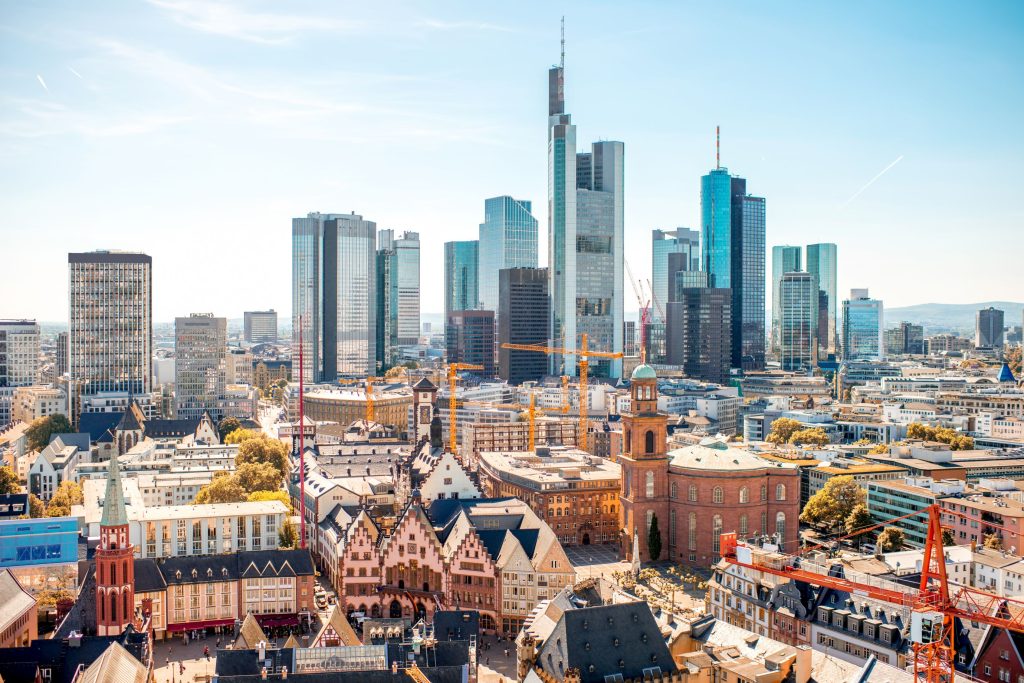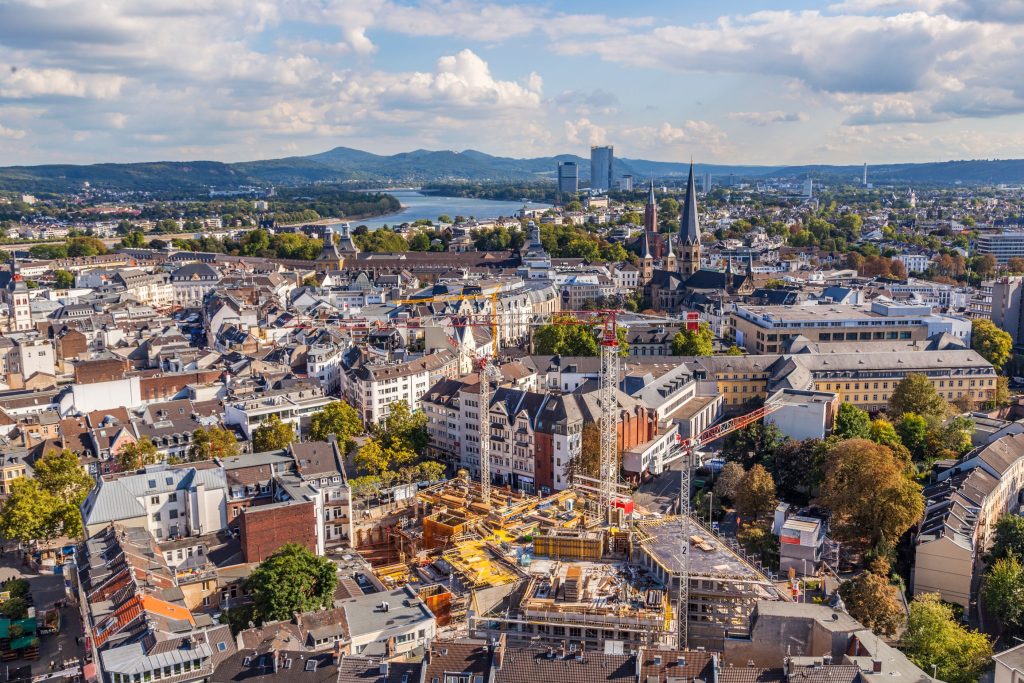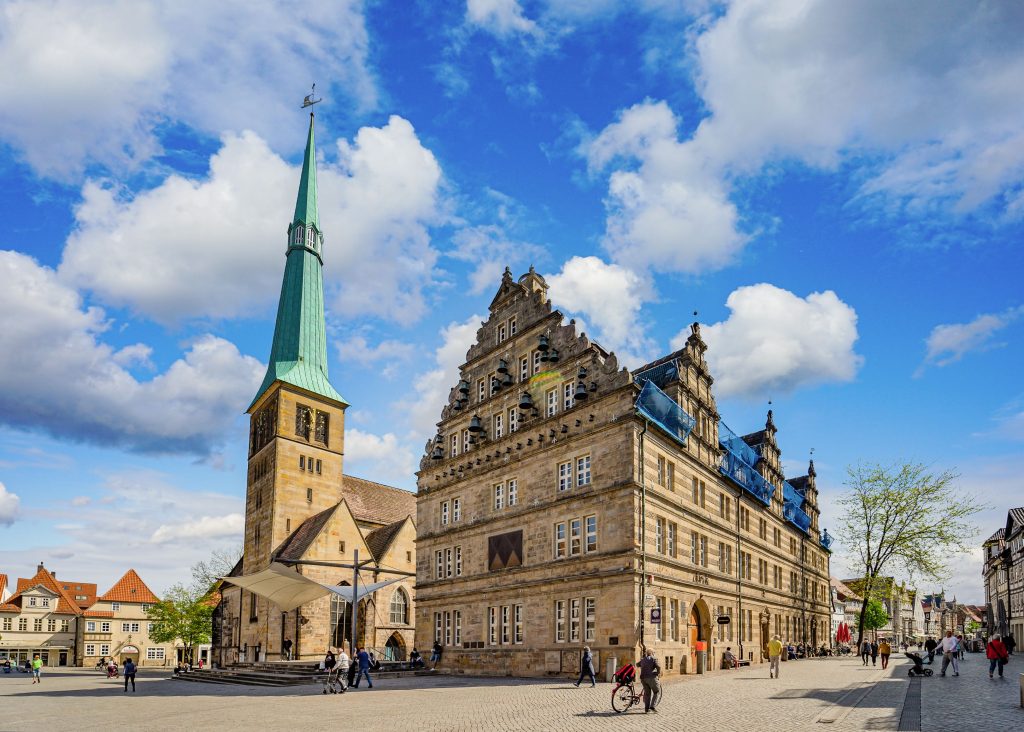After more than a decade of strong price increases, the German real estate market cooled abruptly in H2 2022. From the peak in June 2022 to December 2022, property prices fell by 5.5 per cent. However, in many places they are still higher than in 2021, with the Bundesbank still reporting a year-on-year price increase for residential property of 7.7 to 9 per cent for 2022. However, these values are mainly due to price increases in the first half of 2022. Overall, the price corrections that have taken place so far can be described as moderate. House prices across Germany are still more than twice as high as in 2010. For example, in Hamburg – fuelled by cheap money – prices for single-family houses have risen by 113 percent and flats from the existing stock by 137 percent in the last ten years. Between 1990 and 2010, the price of real estate here rose by 38 percent. (Source: Hamburger Abendblatt). So there is no talk of a real estate bubble bursting so far. But for the economic research institute DIW, a slump in real estate prices of up to 10 percent is likely, the DZ Bank expects prices to fall by 4 to 6 percent.
Decisive for the end of the upswing in German real estate are the high inflation and the increased financing costs for mortgages, which have led to restraint among private buyers and investors. Construction interest rates are currently at just under four percent. In addition, the Bundesbank considers residential property in German cities to be 25 to 40 percent overvalued. However, the price expectations of many sellers have not yet adjusted to this new market situation.

Frankfurt
Price reductions in the major cities
A price correction in Germany’s seven largest cities (Berlin, Hamburg, Munich, Cologne, Frankfurt a.M., Stuttgart, Düsseldorf) occurred primarily from the 3rd to the 4th quarter of 2022. According to ImmoScout24, Munich remains Germany’s most expensive metropolis with price reductions in offers of 3.8 per cent (house/existing building) to 7 per cent (house/new building). Average prices per square metre for flats in Munich range from 7,225 euros/m2 (existing) to 9,411 euros/m2 (new) and for houses from 8,535 euros/m2 (existing) to 10,153 euros/m2 (new). Taking the average prices per square metre for existing flats for January 2023 (source Immowelt), the most expensive major cities are followed by Hamburg (€6,424), Frankfurt (€6,163), Stuttgart (€5,419), Cologne (€5,276), Berlin (€5,040) and Düsseldorf (€5,010). Year-on-year, prices fell by 6% in Munich and Hamburg and by 5% in Frankfurt. The losses in value were somewhat lower in Düsseldorf (- 3 %), Stuttgart (-2 %) and Berlin (-1 %).
The price corrections are quite significant in some medium-sized cities such as Essen (- 8 % to 2,767 €), Hanover (- 7 % to 3,648 €) and Nuremberg (- 6 % to 3,881 €). The losses in value are less pronounced in the less expensive eastern German cities: Dresden (- 1 % to € 2,842) and Leipzig ( – 2 % to € 2,584). According to Europace, the average purchase price of real estate in Munich is around €856,374. This is followed by Stuttgart (€ 545,267), Frankfurt (€ 543,735), Hamburg (€ 521,795), Berlin (€ 501,401). In Düsseldorf you pay €439,997 and in Leipzig €388,685.

Aerial view of town in germany
Holiday destinations are in demand
Germany’s holiday regions remain in high demand for investment. It seems that the Corona pandemic in particular has really whetted the appetite for buying German holiday properties. Thus, there are still areas where prices have risen on a quarterly basis (3.Q./4.Q. 2022). Prices for houses in western Mecklenburg-Vorpommern (Nordwestmecklenburg, Wismar, Güstrow, Bad Doberan) and Osterode am Harz rose by 2.2 to 7.8%. In the districts of Erzgebirge, Rheingau-Taunus and Freyung-Grafenau, house prices rose between 3.7 to 4.4%.
Construction industry on the downswing
New construction is finding itself in increasingly difficult waters. Not only do builders have to content with high land costs, rising construction prices and a lack of craftsmen, they also have to content with tougher bank lending conditions and costly legal requirements. According to the Federal Statistical Office, the price of new conventionally built houses rose by 16.9 % last November compared to the same month last year. As a result, some construction orders are being cancelled. The decline in orders between January and November 2022 is estimated at 8.2 per cent compared to the same period last year. For 2023, the decline could be as high as 10 per cent.
In the older stock, houses built before 1990 that have not been renovated to make them more energy-efficient are likely to be more difficult to sell now. Apart from the purchase price, one would have to invest another 100,000 euros to renovate such a house. However, properties in very good locations are still in demand, even if they need to be renovated.
Rents are rising

Germany
There is a shortage of rental accommodation in Germany, so rents are rising. Several factors are at play at the moment: There are those who are putting off buying a house and are renting for the time being. But the current immigration is also increasing the pressure on the rental market. In addition, the number of single households continues to rise. It is also unlikely that the federal government will be able to meet its target of 400,000 new flats per year. For 2022, a maximum of 250,000 new flats are estimated. For 2023 and 2024, the number of completed flats is more likely to fall even further due to the difficult market conditions for investors. In the major metropolitan areas, asking rents rose by an average of 6.3 per cent in the second half of 2022 compared to the same period of the previous year. In addition, there is a population shift to cheaper counties by people with low and middle incomes who can no longer afford to live in the big city. Consequently, rents are also rising in many rural areas.
Prospects
Despite the current price decline, it remains very questionable whether this downward trend is sustainable. The general shortage of supply suggests that prices will soon stabilise. Especially since the German economy is not developing as negatively as expected: instead of a recession, economic growth is now even expected in 2023, although according to the annual economic report it will be a very meagre at 0.2 percent. In its “Housing Atlas”, Postbank assumes that by 2035 real estate will increase in value in almost half of the 401 German districts and independent cities. This is particularly true of southern Germany, the Hamburg and Berlin areas and the Weser-Ems region.
Sources: Immowelt, ImmoScout, Hamburger Abendblatt, Statistisches Bundesamt, Europace, Postbank, DZ Bank, DIW
Are you interested in selling or buying a property on International or would you like to receive further information about the service of KENSINGTON Finest Properties International AG ? Then get in touch with us today.
We look forward to hearing from you!